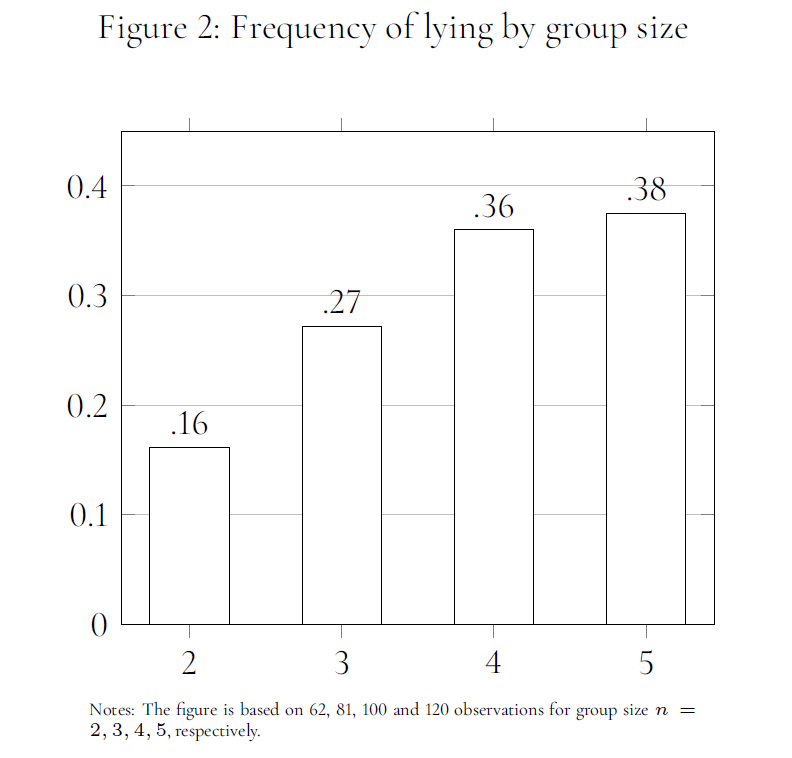Many business decisions are made by teams, with experts recommending groups of 4-6 for optimal performance. However, corporate scandals raise concerns about unethical choices made within groups. A recent IZA discussion paper by Gerd Muehlheusser, Timo Promann, Andreas Roider and Niklas Wallmeier delves into this issue, examining how group size, gender composition, and individual honesty influence overall group truthfulness.
The research involved over 1,600 participants from England and America, divided into groups of 2-5 with varying gender ratios. In each scenario (except one), participants could increase their earnings by lying about the outcome of a die roll.
Guilt sharing: How group size fuels dishonesty
The results revealed a worrying trend: the likelihood of lying grew with group size. Doubling the group size from 2 to 4 saw dishonesty rates double as well (see figure below). The researchers attribute this to diffusion of responsibility, or “guilt sharing,” where individuals feel less responsible for a dishonest decision because others in the group could have intervened.
The gender factor: Why women promote honesty
Interestingly, gender composition also played a significant role. All-male groups consistently displayed lower levels of honesty compared to mixed-gender or all-female groups. The difference was stark, with all-male groups lying up to 35% more frequently than their counterparts for similar group sizes.
However, the study revealed a fascinating twist: having even one woman in the group significantly shifted the dynamic towards honesty. This phenomenon, dubbed the “first female effect,” suggests that women might be perceived as valuing honesty more highly, making men less likely to lie around them. Alternatively, men might be more concerned about appearing dishonest in front of women than other men.
Beyond individual honesty: The complexities of group dynamics
To further explore the link between individual and group honesty, the researchers conducted a separate experiment. While men showed a general tendency towards less truthfulness on their own, the findings were surprising. Even all-male groups comprised entirely of honest individuals lied more often than comparable female groups. This suggests that individual honesty isn’t the sole factor at play.
Overall, this study sheds light on the complex interplay between group size, gender composition, and individual characteristics in influencing group decision-making honesty. The findings offer valuable insights for promoting ethical behavior in team settings, particularly by encouraging diversity and fostering an environment where individuals feel accountable for their actions.

